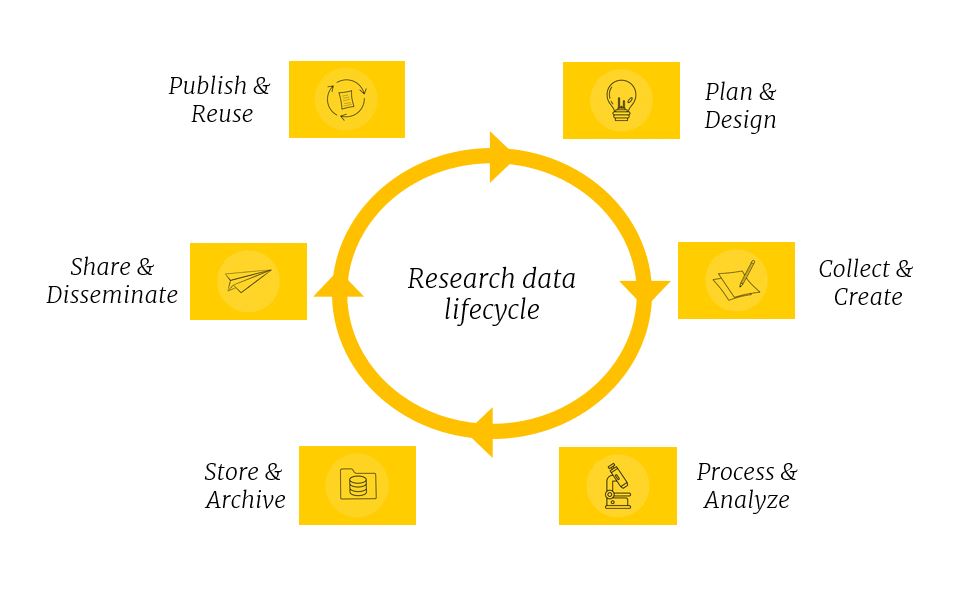Research data management actions and resources will depend on the stage of the data lifecycle, the specifics of the research project and the type(s) of data. Here below you will find an overview of RDM principles and resources for each stage of the data lifecycle. 1.Review relevant policies Keep in mind that your research institute might have their own tailored research data management protocol. 2.Create a Data Management Plan (DMP) The DMP is a document that outlines what you will do with your data during and after your research project. A DMP is requested by the Faculty Ethics Board and is often mandatory requirement by funding agencies. During a research project you might collect or create a lot of data and research records. 1.Develop a sustainable data structure Recommended practices for a good organization of your research data include 2. Maintain clear data documentation Creating comprehensive data documentation is a crucial aspect of good data management. Learn more about data organization and documentation 1. Identify your processing needs and available solutions In order to process and analyze your data, you may need specific software and maybe even hardware (including a certain type of storage) 1.Select an appropriate storage and backup strategy There are many aspects to consider when selecting the appropriate storage for your data, such as storage capacity, accessibility, access control features, data security and integrity. 1. Revise data sharing and publishing options 2. Special considerations Do you have questions or doubts or would like to plan a 1 – 1 consultation?
Learn more about DMP online
(a) setting up a directory structure,
(b) establishing/using naming conventions for your files and
(c) implementing a version control system to keep track of all your documents.
Where to start with RDM?

